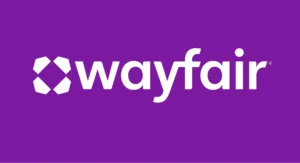A Brief Guide to Crypto IRA
By TIMEOFINFO
December 29, 2023
Update on : December 29, 2023

An Individual Retirement Account or IRA is a personal investment account with tax advantages designed to help you save for retirement. Your contributions may be tax-deductible and earnings tax-deferred. IRAs come in different types, including Traditional and Roth IRAs, each with unique tax implications and eligibility criteria.
A new type of IRA is emerging that has been gaining traction due to cryptocurrency’s mainstream acceptance and valuations. Crypto IRAs provide diversification for retirement savings, although they come with more risks than traditional assets. Below is a brief overview of crypto IRAs.
Understanding Crypto IRAs
A regular IRA lets you buy stocks, bonds, and money market funds for your investment portfolio. Additionally, you can include cryptocurrencies in the mix.
The Internal Revenue Service (IRS) allows cryptocurrencies as an IRA investment. It taxes it the same way as stocks and bonds. However, unlike cash, you cannot simply place these investments in your IRA unless you have a self-directed IRA. Otherwise, you need a custodian to do that for you.
The volatility associated with cryptocurrencies may not apply as much to Bitcoin. Its value fluctuates but remains steady over the 50 percent Fibonacci Retracement level. As a result, most investors refer to crypto IRA as Bitcoin IRA, even if the crypto asset is Ethereum or Litecoin.
With so many other investment options for your IRA, why would you choose cryptocurrencies? It depends on whether the benefits outweigh the drawbacks for you.
Benefits of Crypto IRAs
Many are hesitant when it comes to cryptocurrencies because of recent developments that bring into question their stability. However, several benefits to cryptocurrencies make sense to include them in your investment portfolio.
Diversification
Any financial advisor will encourage you to diversify your investment portfolio, particularly for IRAs. It is a risk mitigation strategy that stops you from keeping all your eggs in one basket. The importance of spreading your investments across different assets is undeniable.
Cryptocurrencies add the diversity you need to your portfolio. It moves in a different space from traditional investments, so it could be the one to protect your retirement account in an economic downturn. The best thing would be to have the ability to predict crypto prices to ensure you make the right choice.
Growth
Arguably, the most significant advantage of a crypto IRA is the prospect of substantial growth. Many investors closely follow the movements of established and capped cryptocurrencies like Bitcoin to predict their long-term stability.
While there is always the risk that even Bitcoin could lose all its value at some point, the same could be true for high-risk stocks. In the meantime, some cryptocurrencies are experiencing tremendous growth in value.
Taxation
You can avoid significant capital gains taxes when trading cryptocurrencies when you put it in a Roth IRA. Gains realized for assets in a Roth IRA are tax-exempt, meaning don’t pay taxes when you withdraw them. Suppose the value of Bitcoin went up 200 percent since you put it in a Roth IRA. Because you already paid taxes on the funds, you do not need to pay income taxes on the gains.
You may also benefit from a regular crypto IRA when you withdraw. Contributions to traditional IRAs are pre-tax, so you defer paying taxes on them and any gains until you retire. While you must report any withdrawals as income, you are likely in a lower tax bracket, meaning you pay less taxes.
Drawbacks of Crypto IRAs
The benefits of crypto IRAs make it attractive to many people planning for retirement. However, before you jump on that bandwagon, you should understand the downside.
Volatility
The number one issue with crypto IRAs is the volatility of cryptocurrencies in general. While Bitcoin is proving remarkably stable, it may not be in the next decade. The leading cryptocurrency regularly goes through price fluctuations, so you must monitor the movements before you buy.
Suppose you ask your custodian to buy crypto and place it in your IRA, like in November 2022, when it hit $16,000. You’re in a good position as of December 13, 2023, because the price is $41,450.
Of course, that can change quickly, which is why you should think carefully before including cryptocurrency in your IRA. Once you put it in, it stays in unless you’re willing to pay the penalties for early withdrawal.
Fiduciary risk
Most people associate the risk of crypto IRA with volatility. Still, your more significant issue might be the lack of cryptocurrency regulations. Most IRAs, including self-directed ones, have a custodian managing them.
However, the regulations about the fiduciary responsibilities related to digital currencies are unclear. The custodian may not have any legal obligation to manage crypto IRAs in the same manner as other investments. They may lose the keys due to fraud or negligence, in which case you lose the value of that crypto. It is uncertain what liability is for the custodian in these cases.
Broker fiduciary duties do not apply to custodial service firms for self-directed IRAs. You are responsible for determining and mitigating the risks of dealing with the crypto markets and taking measures.
Fees
Another issue with including crypto in an IRA is the cost. Trading crypto through an IRA differs from trading at cryptocurrency exchanges or regular stock trading.
Crypto trading fees vary along the investment process. They may include initial setup fees, custody, trading, and annual maintenance fees. For example, suppose you set up a $60,000 self-directed IRA account for trading. Depending on the service provider, that can set you back thousands in charges. You also have recurring custody and maintenance fees.
Additionally, each crypto trade may incur trading partner and custodian fees. Many providers charge 3.5 percent per transaction and a flat fee or one percent for each sale. You may also need to pay blockchain processing fees if they’re not part of the regular charges.
Requirements of a Crypto IRA

Crypto IRAs have unique security and custody requirements that can bump fees up to service the account. Custodians working with cryptocurrency may also have to take on additional reporting duties with the IRS. That could mean even more fees for cryptocurrency IRA investors.
You’ll find many scams and fraudulent companies offering to service your crypto IRA needs. Ensure you choose a custodian company approved by the IRS by checking the updated list.
Suppose you’re in the market for a crypto IRA. In that case, speaking with a certified financial advisor familiar with cryptocurrency is best. That will ensure you are putting your money to its best use.
Setting Up a Crypto IRA
Choose a custodian
Select a reputable cryptocurrency custodian that offers Crypto IRA services. Custodians facilitate the secure storage and management of digital assets within the confines of retirement account regulations.
Fund your IRA
Fund the crypto IRA with contributions under IRS guidelines. Investors can contribute either fiat currency or transfer existing retirement funds into the account.
You cannot purchase cryptocurrency and place it in a Roth IRA. However, you can use a custodian service to use funds from your IRA to place crypto in your retirement account.
Choose assets
Decide on the cryptocurrencies to include in the portfolio. Conduct thorough research and consider risk tolerance, investment goals, and market trends.
Should you risk it?
Purchasing cryptocurrency through your IRA is one way to diversify your portfolio if you can tolerate the risks involved with the possibility of gains. There might also be tax advantages to holding cryptocurrency in your IRA, so it’s best to talk to a financial advisor familiar with IRAs and cryptocurrency to see if it is an option for you.
















